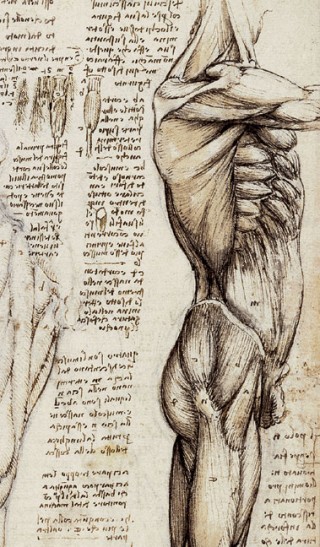The pains of Monday, the gray of growing
April 24, 2012 4 Comments
In the emergency room, Monday is the worst. There’s no way around it. People hold off coming in during the weekend; they hope their symptoms will get better, figure they can hold off just a little longer. And this sentiment begets the Monday afternoon flood of patients – inevitable, painful, never ending. There are some days when things are simply off – today was one of those. My rhythm was broken – in part by an extra person in my critical care area, in part by the patient volume. And so I limped along, feeling as though I was missing something on every patient. There are days like this, I have come to realize. There are days when I find my rhythm easily, get in the groove of things, and then there are days when this breaks down and frustration builds. Unhappy patients who have been waiting hours to be seen does not help the situation. It breeds a highly tense environment, where I feel that I need to first calm people down, then need to care for them properly, and – lastly – to calm myself down. Easier said than done.
The light at the end of the tunnel is here, though. Tomorrow will be my last shift in the emergency department as a third year resident. Hard to believe, really. Only seven more months to go in the coming year, and I will be an attending physician. My blog post on On winter solstice, or becoming real is ever present in my mind and my heart. This is really it. I am savoring every moment left I have with an attending shepherding me, offering his or her insight. And at the same time, I feel as though I am ready – more than ever – to fly. For my patients, I have a strong, growing desire to execute my own plans rather than those of my supervisor. I am ready to be their doctor.
I used to believe that residency was a mountain I needed to climb, and that as soon as I reached the summit, things would become clear. But residency is just a small part of a much larger journey – an uphill climb – continuing to learn, continuing to improve my skills, continuing to question myself. Becoming a doctor is a lifelong process. It requires constant questioning, self-reflection, and yes – even self doubt. To become a good physician is to continue working and learning, day in, day out, year after year.
Because no patient is ever black and white. Each one is gray, with subtleties to their stories that can trick you, trap you, mislead you. The skill and art lies in finessing your skills in interpreting each and every shade of gray, in considering each subtlety, each shadow of doubt that crosses your mind. It lies in continuing, no matter how many years of experience you have, to harbor that fine element of uncertainty, of imperceptible fear, that keeps you on your toes, that keeps you wondering. We doctors will never have all the answers. Thoroughness, experience, compassion, and most of all humility are the best we can offer our patients.



Dear Writer of Blog:
“The Gray of Growing” is a very telling social commentary of Life.
I teach English as a second/foreign language (in the Orient) and the vocabulary – beginning-level for adults or children – is anything BUT ‘gray’ or in the middle (midway between black and white). I know no child know child learns the color, gray, before learning of black and white (and neither do most children prefer the colors, black and white).
Your problem is central to life:a lack of seeing in the middle. Even questions posed by physicians and the lay public are typically extreme in nature exemplified by the popularity of Yes/No questions.
Respectfully,
Laurence Alter
E-mail address:
questioning@mail.com
Please print this out and keep it in your examining room as a reminder of why you are a doctor. it seems to not stick in a lot of doctors’ memories for long.
As someone who has extensive experience on the receiving end of healthcare, I can speak to the vast number of doctors out there who seem to have either lost, or perhaps never had, compassion, understanding, patience and the ability to listen. For years I was told I was imagining my symptoms, was advised to get my head examined. As it turns out, I have undifferentiated connective tissue disease, Sjogren’s Syndrome, fibromyalgia and Hashimoto’s Thyroiditis. I have Reynaud’s and IBS-D, as well. I have had my uterus, ovaries and Fallopian tubes removed, at different times, as well as my gallbladder, my appendix and a piece of bone they took to perform a cervical spine fusion. I had a fundoplication.
The cervical spine fusion was in 2000. In 2011, I was rear-ended in a three car pile-up and suffered severe neck injuries that have led to permanent nerve damage, predominantly on my right side, as well as chronic pain.
I say all of that, to say this. I am shuffled from test to test, from specialist to specialist. I walk in, I pay my co-pay (once the deductible has been met), the doctor asks me the questions HE wants the answers to, but when I start telling them my concerns and asking questions, I get the feeling I am wasting their valuable time. I have a complicated medical situation. Of that I am painfully aware. But understanding the disease process, prognosis, possible outcomes, and which symptoms are related to which condition, in addition to knowing what pill to take and how many times to take it are critical to my being able to help manage my symptoms and be proactive in staying as healthy as I am able.
I have been mis-diagnosed, told bald-faced lies and had my explicit wishes totally disregarded by physicians. I have had the same diagnostic tests run twice in two separate facilities, on consecutive days, even though I took the results from the ER to the doctor on my follow-up appointment.
My doctors now are at a large teaching hospital. I thought that the challenge of my medical issues would be perfect as a teaching tool to perhaps give young doctors a look at auto-immune disease up close and personal, while having the oversight of experienced specialists to ensure the quality of care I require. It also made sense to have all my specialists under one umbrella, so to speak. Team concept and all. This decision has not really paid out as I had hoped. It seems to be a case of “hey, we have one with insurance and multiple health issues. Let’s see how many specialists we can hook her up with before she goes bankrupt”.
It is all too true that the bottom line has replaced the patient in importance within the medical industry. When that happens, medicine fails and society loses.
So I guess that you’ve finished those last several months of residency and become an attending by now? I’m hoping that you continue to update this blog with your thoughts. I’ve read a lot of medical student and resident blogs (I’m a young attorney enjoying exploring your field vicariously), but yours may be the most poignant of all those I’ve read.
Hi, I just read through many of your posts. I enjoyed the way you convey your journey as a resident. I am thinking of switching careers and going into medicine, so your honest perspective has been interesting to me. I hope you will update, now that you’re in your last year.